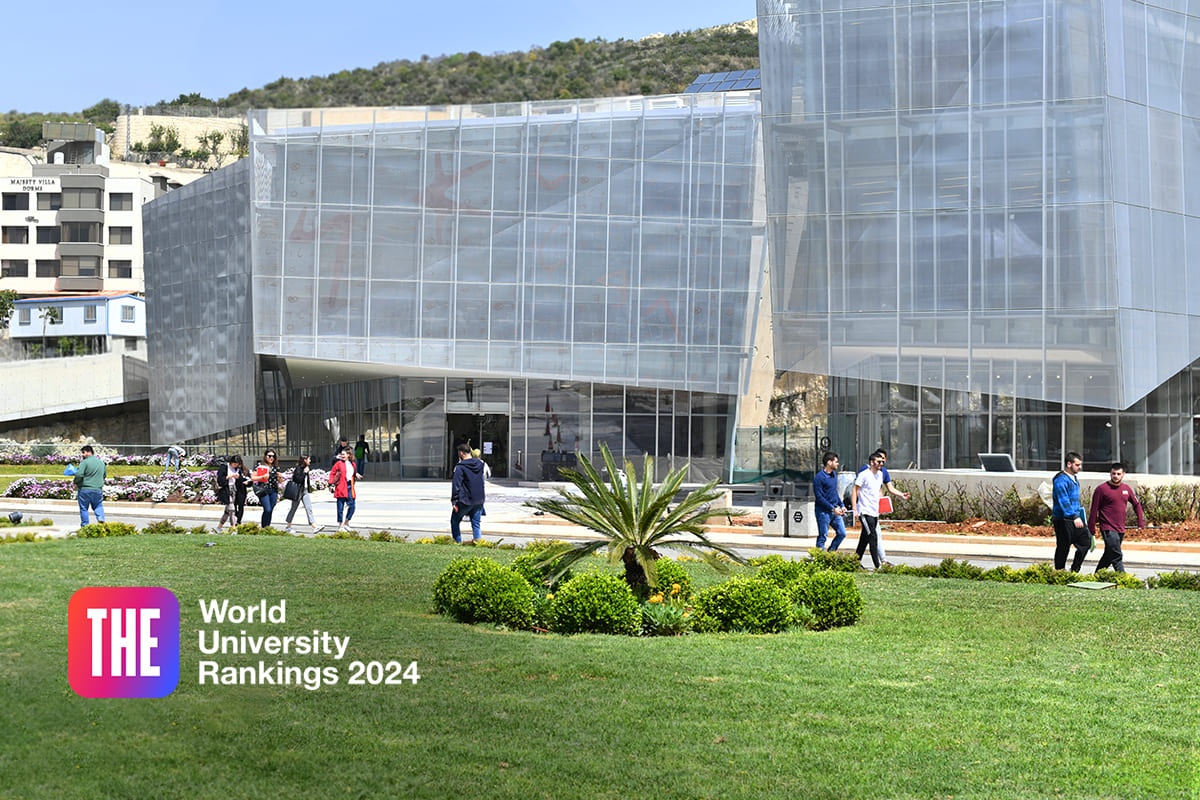LAU Shares No. 1 Spot in Times Higher Education’s World University Rankings
The 2024 results attest to the university’s commitment to research and academic quality.
LAU tied for the No. 1 position in Lebanon in the newly released Times Higher Education (THE) World University Rankings 2024, where it was placed, for the second year in a row, in the 501-600 bracket. The report also ranked the university as the first nationally in Research Quality, with a score of 76.4 percent – a testament to deliberate efforts that LAU has invested in recent years.
THE is a world-renowned ranking agency and its report, released on September 27, features 1,904 universities worldwide and uses five major ranking criteria: Teaching, Research Environment, Research Quality, Industry and International Outlook.
According to the THE website, the methodology was updated this year to “reflect the outputs of the diverse range of research-intensive universities across the world.” Research Quality, where LAU scored highest among all universities in Lebanon, measures citation impact, research strength, research excellence and research influence.
“We are firmly committed to improve our academic standing, and provide our students with a world-class education by distinguishing LAU and Lebanese higher education in the region and beyond,” affirmed LAU President Michel E. Mawad. He pointed to vital achievements that have significantly contributed to the results.
In numbers, the university has witnessed a threefold increase in research output - a remarkable 150 percent surge in publications in tier-one journals – as well as a sevenfold increase in scholarly output since 2017, a sixfold rise in the number of papers with international collaborations and a fivefold growth in published papers relating to the UN Sustainable Development Goals (SDGs).
“Integrating academic research into every facet of our Strategic Plan, expanding our research footprint through a program for international research associates and implementing a successful faculty retention plan are all strategies that have helped to foster a culture of sustainable research at our university. Moreover, the university has just established a sustainability office and recruited a sustainability officer to further improve our SDG-related research and impact,” added Dr. Mawad.
He also thanked the LAU faculty for their perseverance and thanked Provost George E. Nasr, Dean of Graduate Studies and Research Samer Saab and Assistant to the President for Institutional Research Diane Nauffal and their teams for their commitment to excellence.
In an era where global recognition and competitiveness define LAU’s standing in the academic community, said Provost Nasr, “our strong commitment to research and innovation elevates our institution’s profile, attracts top talent and secures our place among the world’s leading universities.”
Dr. Saab further amplified the scope of LAU’s concerted effort to establish itself as a research-active institution of higher learning in Lebanon and the region. A shining example is the establishment of the President’s Intramural Research Fund (PIRF), a $1 million investment in the university’s researchers to stay in Lebanon and exponentially grow their scholarly output. For young aspiring researchers, the university has, since 2020, provided Graduate Program Scholarships tailored to help them become committed researchers. Another example is the recent inauguration of a state-of-the-art, ethically compliant animal facility on the Byblos campus.
Steps have also been taken to ensure that research at LAU complies with the highest possible ethical standards, added Dr. Saab, in reference to the university’s Collaborative Institutional Training Initiative membership, whereby concerned faculty and graduate students have to be certified in Responsible Conduct of Research as well as Human Subject Research.
A robust research environment not only enhances faculty expertise but also enriches the educational experience for students, said Dr. Nauffal, as it provides them with hands-on involvement in cutting-edge projects and access to resources that foster their academic and professional growth.
“In a recent exit survey conducted among graduating students,” she added, “an impressive 84 percent affirmed that research-active faculty can enhance their job perspective, with 91 percent recognizing the benefits for pursuing further studies.”
